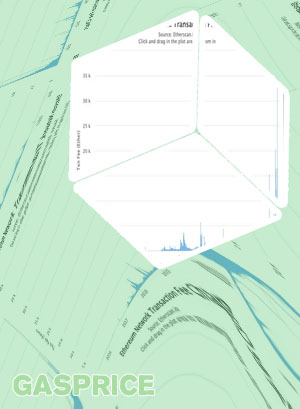
Navigating the complexities of Ethereum network fees can be a daunting task for many users. Understanding how these fees work and how to optimize them is crucial for anyone using the Ethereum network. To help you navigate this topic, here is a list of 3 articles that provide valuable insights on how to manage Ethereum network fees effectively.
Maximizing Ethereum Gas Efficiency: Tips and Tricks for Lower Fees
When it comes to navigating the world of cryptocurrency transactions, one of the most important factors to consider is gas efficiency on the Ethereum network. Gas fees can quickly add up, especially during times of high network activity, making it crucial for users to find ways to lower fees and maximize efficiency.
One key tip for reducing gas fees is to carefully choose the time of your transactions. By monitoring network activity and choosing to transact during off-peak hours, users can avoid the high congestion that leads to increased gas fees. Additionally, batching transactions whenever possible can help save on fees by combining multiple transactions into a single block.
Another important strategy is to optimize the gas limit on your transactions. By setting an appropriate gas limit based on the complexity of your transaction, users can avoid overpaying for unused gas. Additionally, using gas token contracts can help reduce fees by allowing users to pay for gas in advance at a lower rate.
Overall, maximizing Ethereum gas efficiency is crucial for reducing fees and improving the overall user experience. By implementing these tips and tricks, users can navigate the world of cryptocurrency transactions with ease and cost-effectiveness. This article serves as a valuable resource for those looking to optimize their gas efficiency on the Ethereum network.
A Beginner's Guide to Understanding Ethereum Transaction Fees
In the fast-paced world of cryptocurrency, understanding transaction fees is crucial for any investor looking to navigate the complexities of the market. Ethereum, one of the leading cryptocurrencies, has its own unique fee structure that can be confusing for beginners. That's where this informative guide comes in handy.
The article breaks down the concept of Ethereum transaction fees in a clear and concise manner, making it easy for newcomers to grasp the important details. By explaining how fees are determined and the factors that can influence them, readers can gain a better understanding of how to optimize their transactions for efficiency and cost-effectiveness.
One key takeaway from the guide is the importance of gas fees in Ethereum transactions. Gas fees are essentially the price users pay to execute transactions on the network, and understanding how they work is essential for avoiding unnecessary costs.
Overall, this beginner's guide serves as a valuable resource for anyone looking to dive into the world of Ethereum transactions. By providing a comprehensive overview of fees and how they impact users, this article equips readers with the knowledge they need to make informed decisions when navigating the cryptocurrency landscape.
Strategies for Minimizing Ethereum Network Fees: A Comprehensive Guide
Ethereum network fees have been a hot topic in the crypto community due to the recent surge in gas prices. As a result, users are looking for ways to minimize these fees and optimize their transactions. In this comprehensive guide, we will explore effective strategies to help you reduce Ethereum network fees and save money on your transactions.
-
Timing your transactions: One of the simplest ways to minimize Ethereum network fees is by monitoring the network congestion and choosing the right time to make your transactions. By avoiding peak hours, you can take advantage of lower gas prices and reduce your fees significantly.
-
Using a gas fee tracker: Gas prices on the Ethereum network are constantly fluctuating, making it challenging to determine the optimal gas price for your transactions. By using a gas fee tracker, you can stay informed about the current gas prices and adjust your fees accordingly to save money.
-
Batch transactions: Instead of making multiple small transactions, consider batching them into a single transaction to save on gas fees. By combining multiple transactions into one, you can optimize the gas usage and reduce the overall costs of your transactions.
-
Utilizing layer 2 solutions: Layer 2 solutions like Optimistic Rollups and zkRollups offer a cost-effective alternative to the Ethereum mainnet. By leveraging these

